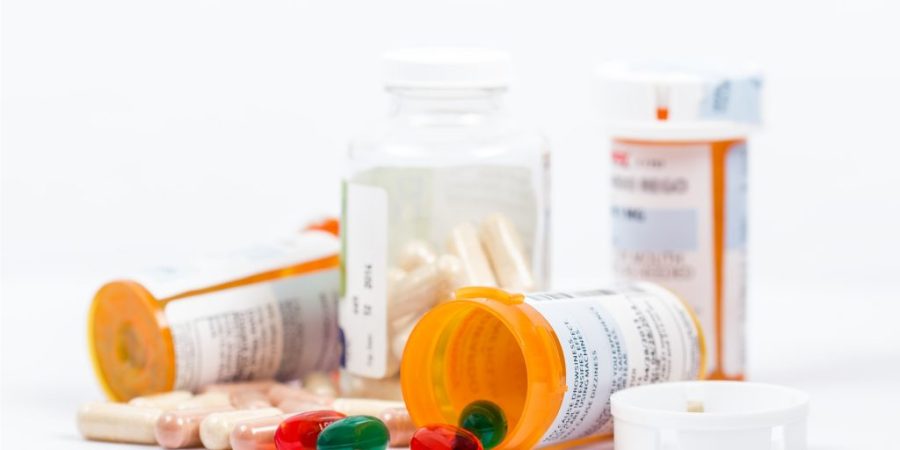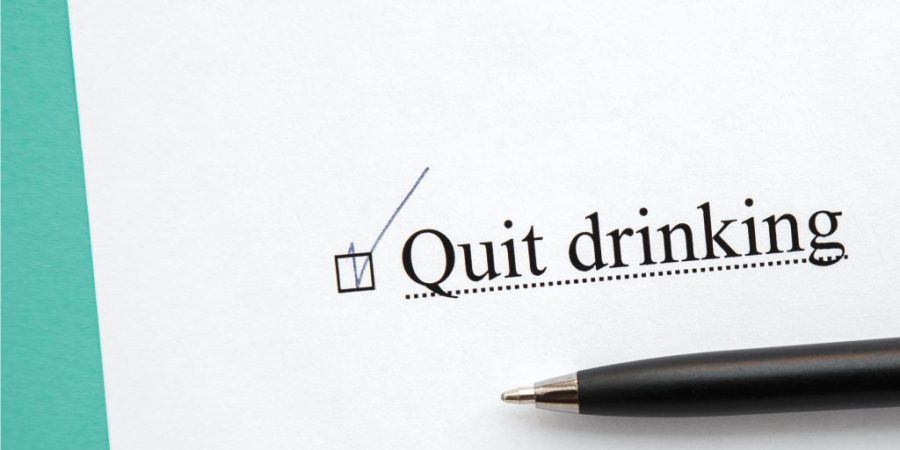
Alcohol use disorder (AUD) is one of the most prevalent substance use disorders in the United States, and quitting alcohol can be profoundly difficult. Fortunately, medication to stop drinking does exist and can be helpful to the right person struggling with alcohol abuse. However, medications to stop drinking are only one piece of the treatment puzzle.
Pills to stop drinking, while appealing, are far more effective when combined with alcohol counseling and other behavioral addiction treatment methods. Learn more about medication for alcohol abuse, how drugs for alcoholism work, and the benefits of using alcohol medicine as a complement to other forms of treatment for alcohol use disorder.

Simply put, there is no magic pill when it comes to quitting drinking. Drug therapy for alcohol abuse often ends in relapse without therapy that addresses the roots of addiction, and medication to quit drinking alone may not deter a person who is not quite ready to stop.
That said, when used in combination with alcohol addiction treatment, medication to treat alcoholism can be an effective tool in alcohol recovery for the right person. Currently, there are three FDA-approved medications to stop drinking. In addition, there are a few other prescriptions that are used off-label in alcohol abuse treatment.
Table of Contents
FDA-Approved Medication for Alcoholism
The federal Food and Drug Administration (FDA) has approved several medications to help stop drinking alcohol. It should be noted that none of these medications are recommended until after a person has already quit drinking. As such, these prescriptions will not assist in alcohol detox.
The three FDA-approved medications for alcohol abuse are:
- Disulfiram (Antabuse)
- Naltrexone (Vivitrol)
- Acamprosate (Campral)
Each of these medicines interacts differently with the body and provides different ways of assisting a person who is trying to stop drinking.
Disulfiram (Antabuse)
Disulfiram is one of the oldest medications to stop drinking, and it works by altering the way your body breaks down alcohol. As a result of leaving much of the toxic substances from alcohol unmetabolized, you will become uncomfortably ill if you drink alcohol while taking Antabuse.
Antabuse side effects when taken with alcohol include:
- Rapid heart rate
- Flushing
- Vomiting
- Nausea
- Headache
- Thirst
- Respiratory problems
- Low blood pressure
- Vertigo
Additionally, disulfiram is hard on the liver and is not recommended to those with impaired liver function.
The thought behind disulfiram is that it will act as a deterrent against drinking. However, disulfiram does nothing to combat alcohol cravings or to address the reasons for drinking. As such, Antabuse is a far more effective medication to stop drinking for people who take it in conjunction with alcohol abuse behavioral treatment.
Naltrexone (Vivitrol)
Naltrexone was originally developed as a treatment against opioid addiction. The drug works by reducing or eliminating the pleasure felt by taking opioids. Additionally, however, it has shown promise as an alcohol craving medication in people who have quit drinking.
Since naltrexone reduces alcohol cravings, it can help break the craving and reward cycle associated with drinking or taking drugs, which will allow some people to more easily quit.
Naltrexone, or Vivitrol, can be administered via pill or a monthly injection. However, like other anti-alcohol drugs, it does not work for everyone. Naltrexone also may negatively affect the liver and is not recommended to those with liver damage. As with any anti-alcohol medications, naltrexone does not treat the actual addiction and will be more beneficial in combination with alcohol addiction treatment.
Acamprosate (Campral)
One of the ways that long-term alcohol abuse damages brain chemistry is by decreasing GABA function. GABA is a neurotransmitter that is credited for calming the central nervous system and preventing nervous activity. Therefore, when GABA function is decreased, anxiety and mental illness can worsen.
Acamprosate is chemically similar to GABA. Because of this, when acamprosate (or Campral) is taken, it may stabilize brain chemistry that has been damaged by long-term, heavy alcohol abuse. Consequently, people who take acamprosate should experience less distress from alcohol abuse and post-acute alcohol withdrawal symptoms (PAWS), such as insomnia and anxiety.
However, acamprosate does not alleviate acute or early alcohol withdrawal symptoms and does not address the underlying cause of addiction. Also, while well-tolerated by the liver, acamprosate does stress the kidneys and should not be used by those with renal disease.
Off-Label Medication to Stop Drinking

In addition to FDA-cleared medication to stop drinking, there are also a number of medications currently being used to treat alcohol use disorder that have not been approved by the FDA for this use. These include anticonvulsants and muscle relaxers usually prescribed for epilepsy. In addition, the anti-smoking drug varenicline (Chantix) and the anti-nausea ondansetron (Zofran) have also shown some promise in treating AUD.
Epileptic Drugs for Alcohol Use Disorder
Anticonvulsants are prescribed to prevent or stop seizures in epileptic patients. They work by calming the activity in the brain, therefore reducing excitability in a similar way as acamprosate. Anticonvulsants will not alleviate acute withdrawal symptoms during alcohol detox, but there is hope they will alleviate long-term symptoms associated with quitting alcohol.
Specific anticonvulsants that look encouraging for AUD treatment include topiramate (Topamax) and gabapentin. In addition, the muscle relaxant baclofen (Lioresal) has been shown to alleviate alcohol cravings and anxiety in the brain.
Other off-label medications that show promise as quit drinking aids are varenicline (Chantix), ondansetron (Zofran), and Kudzu, an over-the-counter herbal option.
Medication to Stop Drinking vs Medical Detox
It is important to emphasize that while medication to stop drinking is a form of medication-assisted treatment (MAT), it is not the same as medical detox. Rather, medical detox uses medication to ease withdrawal symptoms associated with drug and alcohol detox. The anti-alcohol medications listed in this article will only support you after you quit drinking, and will not help you manage withdrawal or detox discomforts.
It is also important to understand that alcohol is dangerous to detox from alone. If you believe you are addicted to alcohol, it is important to contact a physician or alcohol rehab center before you attempt to quit drinking. By getting help, you will be physically, emotionally, and medically supported throughout the alcohol detox process.
Current Recommendations for Medications to Help AUD
Currently, the American Psychiatric Association (APA) recommends the first line of treatment for pharmaceutically treating alcoholism to be naltrexone and acamprosate. Topiramate, gabapentin, and disulfiram are secondary recommendations for medication to treat alcohol use disorder. However, the APA also recognizes that all medication to stop drinking should be supported with therapeutic counseling to address the psychological components of addiction to help a person get sober.
Alcohol Addiction Treatment in Las Vegas, Nevada
The benefits of quitting drinking are almost endless. However, quitting alcohol can be immensely difficult. At the Vance Johnson Recovery Center, we understand that the best alcoholism treatment options for lifelong recovery include a structured alcohol rehabilitation program that addresses mental health and the root of individual addiction.
Listed below are a few of the alcohol treatment therapies available at our addiction treatment center:
- Individual and group therapy
- Complementary therapies (i.e., yoga and recreational therapy)
- Cognitive behavioral therapy (CBT)
- Dialectical behavior therapy (DBT)
- Acceptance and commitment therapy (ACT)
- Motivational interviewing (MI)
- Mindfulness and meditation
- Trauma-informed care
- Eye movement desensitization and reprocessing (EMDR)
- Clinical hypnotherapy
- 12-step recovery groups
In addition, at VJRC we commit to providing a continuum of care that addresses both your mental and physical health needs. Our commitment is to support you throughout your recovery journey before, during, and after treatment at VJRC.
Deciding to commit to alcohol addiction treatment is a huge step towards recovering from addiction. To get started on your recovery, contact one of our admissions specialists at 888-828-2623. Alternatively, you can use our confidential online form to ask us anything that comes to mind. Starting alcohol addiction recovery is a big step, but with professional care and support, we know that you have what it takes to get and stay sober.
The post Medication to Stop Drinking in 2021: Is One Right for You? appeared first on Vance Johnson Recovery Center.
Source
Original Author: Vance Johnson Recovery Center

